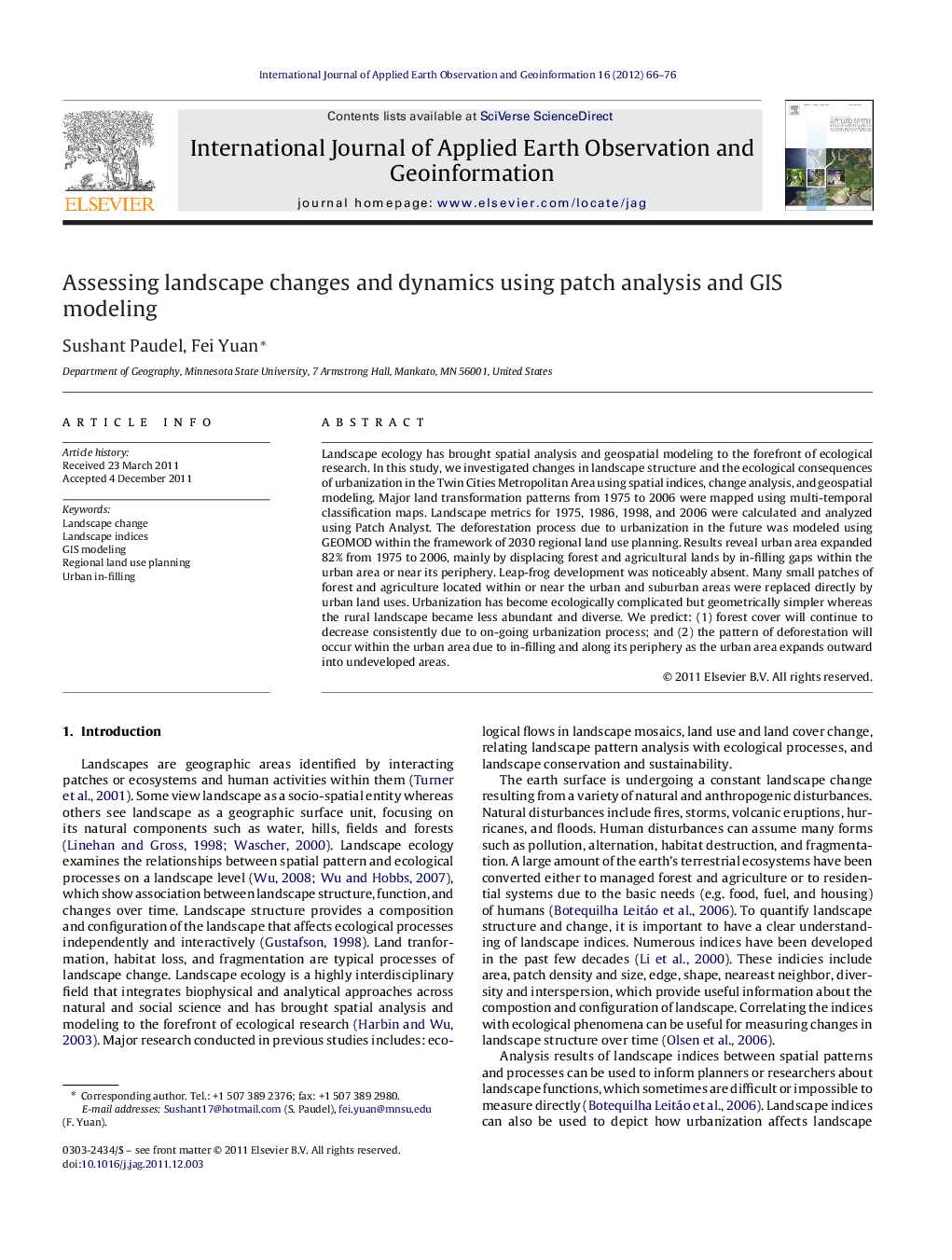| کد مقاله | کد نشریه | سال انتشار | مقاله انگلیسی | نسخه تمام متن |
|---|---|---|---|---|
| 4465008 | 1621844 | 2012 | 11 صفحه PDF | دانلود رایگان |

Landscape ecology has brought spatial analysis and geospatial modeling to the forefront of ecological research. In this study, we investigated changes in landscape structure and the ecological consequences of urbanization in the Twin Cities Metropolitan Area using spatial indices, change analysis, and geospatial modeling. Major land transformation patterns from 1975 to 2006 were mapped using multi-temporal classification maps. Landscape metrics for 1975, 1986, 1998, and 2006 were calculated and analyzed using Patch Analyst. The deforestation process due to urbanization in the future was modeled using GEOMOD within the framework of 2030 regional land use planning. Results reveal urban area expanded 82% from 1975 to 2006, mainly by displacing forest and agricultural lands by in-filling gaps within the urban area or near its periphery. Leap-frog development was noticeably absent. Many small patches of forest and agriculture located within or near the urban and suburban areas were replaced directly by urban land uses. Urbanization has become ecologically complicated but geometrically simpler whereas the rural landscape became less abundant and diverse. We predict: (1) forest cover will continue to decrease consistently due to on-going urbanization process; and (2) the pattern of deforestation will occur within the urban area due to in-filling and along its periphery as the urban area expands outward into undeveloped areas.
► Landscape structure and dynamics were evaluated using landscape indices and GEOMOD.
► Large amount of agriculture and forest land were converted to urban land uses since 1975.
► Urban in-filling pattern rather than leap-frog development was revealed.
► Urban expansion resulted in a geometrically simpler but more complicated urban landscape.
► Rural landscape is becoming less abundant with a decrease in the extended ecotones.
Journal: International Journal of Applied Earth Observation and Geoinformation - Volume 16, June 2012, Pages 66–76